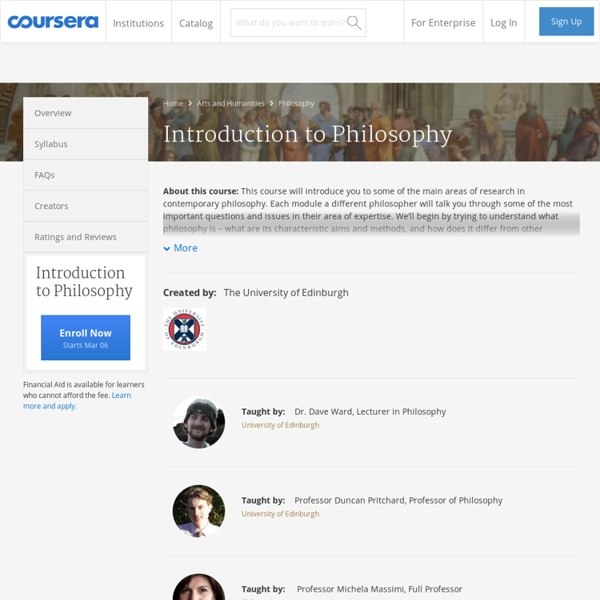



the language of Hollywood About the Course This history course explores how fundamental changes in film technology affected popular Hollywood storytelling. We will consider the transition to sound, and the introduction of color. Subtitles for all video lectures available: Turkish (provided by Koc University), English Course Syllabus Here is a week-by week description of the course and the films discussed. Week One: INTRODUCTION Lecture One: Form, Technology, and the Art of Cinema Lecture Two: The Power of Silence: Cinema as a Visual Art. Watch Street Angel (Fox, 1928)NOTE: Street Angel is Optional because the purchase price of the DVD can be prohibitive. Lecture Three: Street Angel: Borzage's Visual Opera Lecture Four: von Sternberg's World Watch Docks of New York (Paramount, 1928) Lecture Five: Docks of New York: The Seedy Side of Silence Week Two: Lecture One: Sound Comes to Cinema Watch Applause (Paramount, 1929) Lecture Two:Applause, Mamoulian's Struggle for StyleLecture Three: The Marx Brothers: Unbridled Talk Week Four:
Listening to World Music About the Course With the click of a mouse, now more than ever we are able to access sounds made by people from all around the world. And yet, most of us don't listen to the wide diversity of music available to us, probably because it sounds so strange. This class will open up the world of music to you. Course Syllabus Week One: Introductions with an overview of recording technology history and ties to world music and cultures; vocabulary for talking about world music and global cultural encounters, and a case study of “Chant,” the 1990s Gregorian chant recording that crossed over into the popular music market.Week Two: Graceland, Paul Simon's "collaborative" album. Recommended Background Though it may be useful, you are not required to have any music theoretical knowledge to take the class. In-course Textbooks As a student enrolled in this course, you will have free access to selected chapters and content for the duration of the course. Suggested Readings Course Format
Developing Innovative Ideas for New Companies About the Course #1 Entrepreneurship Course on Coursera* #3 Overall Business Course on Coursera* *CourseTalk's "Top Rated" MOOCs (October, 2014) This course assists aspiring entrepreneurs in developing great ideas into great companies. Using proven content, methods, and models for new venture opportunity assessment and analysis, students will learn how to enhance their entrepreneurial mindset and develop their functional skill sets to see and act entrepreneurially. With this course, students experience a sampling of the ideas and techniques explored in the University of Maryland's Online Master of Technology Entrepreneurship. Course Syllabus Week One: Entrepreneurial Perspective What is entrepreneurship? Week Two: Entrepreneurial Mindset, Motivations and Behaviors Entrepreneurial mindsetEntrepreneurial motivationsEntrepreneurial behavoirsRisk taking in entrepreneurial decision-makingRisk, uncertainty, and stakeholder involvement Week Three: Industry Understanding Recommended Background Yes!
Coursera.org comic books and graphic novels About the Course The comic book pamphlet developed as an independent literary form in the 1930s and early 1940s and has been a favorite of adolescent enthusiasts and cult devotees ever since. Recently, it has entered into a process of transformation, moving from a species of pulp fiction on the margins of children’s literature to an autonomous genre, one Will Eisner labeled the graphic novel. “Comic Books and Graphic Novels” presents a survey of the history of American comics and a review of major graphic novels circulating in the U. Get started by enrolling in an upcoming session, then print out the official course playset and get started! Course Syllabus SyllabusComic Books and Graphic NovelsProfessor William KuskinUniversity of Colorado Boulder This is the final schedule. Video 1: Welcome to the Course Video 2: The Syllabus (Overview) Video 3: The Syllabus (Logistics) Video 4: What is a Comic? Video 5: Teaching Comics (w/Barry Barrows) Video 6: Collecting (w/Jim Vacca) Recommended Background
Intro programming for digital artists About the Course The course, lecture, and examples build on each other to teach the fundamentals of programming in general (logic, loops, functions, objects, classes) and also deals with advanced topics including multi-threading, events and signals. Throughout the course, students create meaningful and rewarding expressive digital “instruments” that make sound and music in direct response to program logic. The ChucK language provides precise high-level control over time, audio computation, and user interface elements (track pad, joysticks, etc.). Course Syllabus WEEK 1: Basics: Sound, Waves, and ChucK Programming WEEK 2: Libraries and Arrays WEEK 3: Sound File Manipulation WEEK 4: Functions WEEK 5: Unit Generators and Physical Models WEEK 6: Multi-Threading and Concurrency WEEK 7: Objects and Classes WEEK 8: Live Control: Keyboard, Mouse & MIDI Recommended Background Suggested Readings Course Format Will I get a Statement of Accomplishment after completing this class? Yes.
Creativity, Innovation and Chage This course empowers learners to develop their creative human potential to improve, enhance, and transform their businesses, communities, and personal lives. Processes like Intelligent Fast Failure will teach you rapid prototyping skills, while the Adaption-Innovation creative style spectrum will help you understand how and why your ideas are unique - and how you can work better with others to solve complex problems. Personal reflection tools like CENTER add a character development dimension to the course that is an important first step towards unlocking your creative potential. Along the way, you will engage with a rich set of tools, exercises, and metrics in order to understand these concepts and how they impact the development of your creative life and career. Joining the team are Dr. Follow us on Twitter @PSUCIC Like our Facebook Page hereJoin our Google+ community hereConnect with the community on LinkedIn here Time-frame: 8 weeks, starting in September 2013 Week 1: Creative Identity